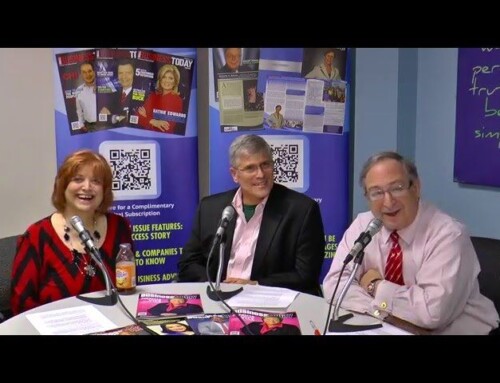Guest Authored by Paul Feiler PhD
Weariness with Time: A Key Currency for Investment in a Rich Life Portfolio
As we build wealth across a diverse life portfolio, one of our most important currencies is Time. Guest blogger Paul Feiler guides us in an in-depth exploration of the meaning and impact of time on a rich and rewarding life.
I want to start this blog with some reflections on time and, specifically, the weariness with time that many of us feel trying to cram into 24 hours life at work, life at home, life with friends, and life in the world.
We live life within the dimensions of space and time. We have a world to know and explore—a “space”; and we have a season—a “time” in which to experience it. From birth, we develop an awareness of space. We see it, hear it, and touch it. We learn to be comfortable in it. But time is more subtle. We’re less familiar with time and more ill at ease. We find ourselves fighting time, pressed by time, surprised by how quickly time passes.
How can we live meaningfully throughout a lifespan governed by days, months and years, regulated by the cycle of the seasons, by the rhythms of life? Instead of fighting time, how can we put time on our side?
One of our great struggles with time is the weariness of spirit caused by our bondage to time.
Recently a friend of mine stopped at a convenience store to buy a lottery ticket. As Carl filled out his ticket, he noticed a woman looking over his shoulder. It appeared as if she were trying to copy his numbers. Well, she was embarrassed and said to Carl, “I’m really sorry. Honestly, I’m not trying to cheat. I just can’t figure this out.” Carl said, “I didn’t think you were cheating, but it wouldn’t really matter to me if you were. I wouldn’t mind a bit if we both won!” The woman started to shake her head, her face saddened and she said, “If only I could win, I could quit my stupid job.”
Many of us today experience a great dissatisfaction, not just with work, but also with life in general—at work, at home or at play. As the pace of life grows faster and faster, as we pile up one activity on another, we end up feeling that how we spend our time has little to do with who we are or what we want out of life. In the morning, the alarm goes off and our first thought is to wonder, “How much time is there to get up, to get the kids ready and get out the door?” After a frenetic workday, every hour of the evening is scheduled. We cook the dinner, clean up, go to a meeting, help the kids with their homework, go shopping, or go to the gym. Finally, we collapse into bed and check the clock to see how much time we have before the same cycle begins again. Weary, we live in bondage to time.
A young man was heading off to the dentist. His wife, who loves him, knows how much he dreads going to the dentist, and was feeling his anxiety, said to him, “Honey, I would gladly trade places with you, if I could.” The husband then watched as his wife picked up their new baby in her left arm and a package of diapers with her left hand. She then hung a tote bag and her purse over her right shoulder, took hold of their two-year-old with her right hand and groped around for the car key which the two-year-old had hidden someplace. Seeing all this, the husband shook his head and said, “Thanks for the offer to take my place, but I think I’d rather do it myself. At least where I’m going, they give you anesthesia.”
Our weariness with time, our feeling that we need to be anesthetized against the ravages of our frantic pace of life, is a symptom of our ignorance of time—the price we pay for failing to live within the bounds of time. Physiologically, we simply are not made to live like this. Our fast pace of life, our battle with time, creates a chasm between our thoughts and emotions. We now know that our thoughts and emotions operate at different speeds. Thoughts are processed electrically, they communicate quickly, they are able to keep up with a busy schedule. But emotions respond to the events of life slower than thoughts because they’re hormonal and chemical. When the demands of life require us to function quickly, intellectually we may do well, but our emotions can’t keep up. So we stuff them down.
When we finally stop, like the cars of a freight train, our emotions come crashing into one another; we’re unable to rest or be renewed. About this, psychiatrist Dr. Stephan Rechtschaffen writes:
“The moment we begin to slow down, our emotions come flooding back. Unfortunately, many people report that when they try to relax, what comes up are uncomfortable emotions—anger or anxiety over unresolved encounters. So we get busy again, and repress once more those feelings that allow us fully to experience our lives.”
This vicious cycle creates weariness with time—a failure to experience the events or relationships of our lives in a meaningful way, as whole persons, with our head and with our heart.
If we want to put time on our side, if we want to overcome our weariness in the battle with time and come alive, we need to broaden our concept of the present—to take the time to experience each moment, each event, each encounter with both our head and our heart.
Something curious happens when we increase the pace of life. Our perception of the present grows shorter and shorter, our awareness of time narrows into tinier and tinier increments. Each day is crammed so full of events that we leave ourselves no time to actually experience these events in any meaningful way. We live the “now” so that we can get to the “next.” We finish this so we can get to that. We rush through lunch so we can get back to our desk. We work today so we can get to the weekend.
When our lives are dominated by the future, we lose the present. But it is only in the present, only in the “now” that we learn, that we love, that we contribute, that we laugh, that we are fully alive. If we want to overcome our weariness in time, we need to come fully into the present moment—to expand the present by slowing down the rhythm of life, by bracketing more time out of the past and the future, so that the “now” can be experienced as the “now,” and not as a prelude to “the next.”
This involves developing a sense of mindfulness about the present, cultivating a way of being that puts us fully in the present, with our head and with our heart, without anxiety or pressure about staying on schedule.
There’s now a present, now a season for us to attend to—an important moment in time, packed with significance and opportunity. We can ignore it, we can continue our frantic pace, running away from the now on our way to the next; or we can pay full attention to the now and experience the present fully.
We may think that we are trapped wearily and helplessly in an unending circle of tasks, burdened with problems and annoyances; that in every moment we have a dozen different things to do, a dozen problems to solve, a dozen pressures to endure; but this picture is false.
What is true is that the crowded hours of life come to us one moment at a time. Each of these moments is significant. Imagine an hourglass on your desk. Connecting the bowl at the top with the bowl at the bottom is a tube so thin that only one grain of sand can pass through at a time. Our days may bring many tasks, but invariably they come single file.
Weariness results when the present is ignored, when the present is perceived and treated as irrelevant and meaningless. To come fully alive, come fully into the present with your mind and with your heart: experience the “now” as the “now” and not as a prelude to the “next.” Come alive by slowing down the rhythm of life. Develop mindfulness about the present by understanding that every moment is potentially meaningful.
Questions for thought:
Sometimes, how we spend our time has little to do with who we are or what we want out of life. Think about who you are and what you want. If you could, how would you spend your time differently? List some activities that you would spend more time on if you had more time.
Life comes to us one moment at a time. List some of the pressures in your life that keep you in bondage to time and keep you from living in the present.
What practical things could you do to slow down the rhythm of your life?


